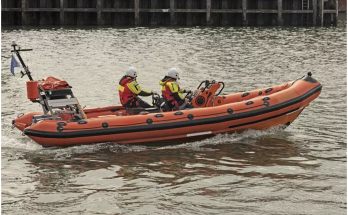The wildfires have triggered a state-wide air quality alert in Wisconsin, plus regional alerts in Minnesota and Michigan
:max_bytes(150000):strip_icc():focal(707x484:709x486):format(webp)/smoke-rises-from-wildfire-in-Flin-Flon-Manitoba-Canada-053025-46f9d7c67f41439ea7b44d1d462fc540.jpg)
NEED TO KNOW
- Canadian wildfires burning in Saskatchewan and Manitoba are expected to bring smoke and affect air quality in the Midwestern U.S.
- The fires have already prompted air quality alerts in states like Wisconsin, Michigan and Minnesota
- So far, 17,000 people in Canada have been forced to evacuate in a situation Saskatchewan Premier Scott Moe called “very serious”
Wildfires in Canada are expected to impact air quality in the United States as strong winds blow smoke south into the Midwest.
Fires in Saskatchewan and Manitoba have triggered a statewide air quality alert in Wisconsin and regional alerts in Minnesota and Michigan, according to The Weather Channel, which reported that Chicago could also see a drop in air quality from the fires.
The Washington Post reported that Montana, North Dakota, South Dakota, Nebraska, Kansas, Iowa, Missouri, Indiana, Michigan and Ohio may all see effects from the wildfires, too, when smoke is pushed into the region on Friday, May 30.
While the smoke is expected to be concentrated mostly in the Midwest and Northern Plains from Friday through Sunday, June 1, The Weather Channel said that it could also move to the southern and eastern U.S. in lower concentrations.
The smoke will likely be pushed north on Monday, June 2, according to The Weather Channel. The outlet reported that “relief from smoky skies and air quality issues should at least temporarily arrive” thanks to winds coming into the region from the southern U.S.
The Canadian wildfires, which have already blazed through hundreds of thousands of acres, have forced 17,000 people in the country to evacuate so far, according to USA Today.
Canada’s Department of Natural Resources said “rising temperatures, steady winds and low relative humidity” have sparked the fires, which Saskatchewan Premier Scott Moe called “a very serious situation.”
“I do fear things are going to deteriorate with the weather we have ahead of us in the days ahead,” Moe said in a Thursday, May 29, press conference, USA Today reported.
The situation is so dire that the military has been called in to assist with evacuations, Manitoba Premier Wab Kinew said at a news conference, according to the paper. Kinew said the evacuation was the largest “seen in most people’s living memory.”


